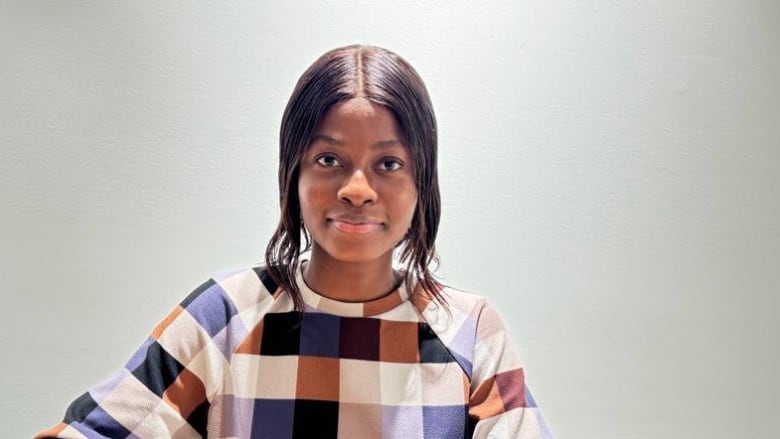Canada
Cecily Erzuah: A Ghanaian Student’s Journey To Self-discovery In Canada

Prince Edward Island diversity and social justice student Cecily Erzuah recounts her self-discovery and perseverance as a Black woman in Canada.
Erzuah migrated to Canada from Ghana at 18 with the promise of opportunity. Little did she know her encounter would reveal racial identity’s intricacies. Erzuah saw subtle but significant prejudice in a Charlottetown clothes shop. Customers were uncomfortable with her help and went to her white coworkers, making her uneasy that her skin color was an issue.
From Ghana, where she was surrounded by others like her, to Canada was a significant cultural change. Erzuah’s initial joy turned into a deeper awareness of prejudice after George Floyd’s untimely death, which echoed across the Atlantic.
The problems she had were highlighted in her 2022 University of Prince Edward Island classroom experience. Erzuah, the only Black person in the group, felt alone during a transatlantic slave trade lecture. Erzuah was depressed thinking about the young ladies who suffered during slavery, even if her peers were concerned about past injustices.
Classmates noted Erzuah’s quiet throughout the presentation. These stares, which may have been meant to show compassion, made her more conscious of her Black identity, emphasizing the loneliness of being the only person of color in a classroom.
Erzuah became resilient. Self-awareness helped her understand her talents and flaws. She had unpleasant talks and spoke out about racism to gain confidence. Erzuah studied racism and Black experiences via books and films to empower herself. This proactive attitude lets her identify herself without others’ constraints.
Cecily Erzuah has grown tall and confident despite difficulties. Her tale emphasizes self-awareness, perseverance, and the continual process of accepting one’s uniqueness despite social barriers.
Cecily Erzuah: Racial Injustice In Daily Life
Cecily Erzuah arrived in Canada at 18 with hopes of fresh prospects. The harsh realities of racism changed her truth. Erzuah worked at a Charlottetown clothes shop where consumers were uncomfortable with her help and chose her white coworkers. She struggled to accept that her skin tone distinguished her after these subtle but powerful encounters. The dramatic transition from Ghana to Canada showed how racism can emerge in regular meetings.
The Stress Of Being The Only Black Voice In Class
Erzuah’s experience being the only Black student at the University of Prince Edward Island was emotional. Classmates voiced worry over Black people’s dehumanization during a transatlantic slave trade debate. Despite their good intentions, Erzuah felt so alone. Her inability to openly discuss an issue essential to her identity left her feeling lonely as the only person of color in a location. The encounter showed the delicate balance between empathy and understanding racial distinctions that might cause otherness.
Read Also: Canada Oil And Gas Agency Denies Indigenous Staff Right To Sue Over Racism And Toxicity
Liberation From Racism Via Resilience
Despite these obstacles, Cecily Erzuah found self-empowerment and resilience. She actively participated in challenging debates and pointed out discriminatory conduct to fight prejudice. Erzuah read and watched books and movies on racism and Black life. This proactive attitude lets her identify herself without others’ constraints. Erzuah became a confident, evolving person. Her tale shows how persistence and self-awareness may help one navigate bigotry and find one’s identity in a culture that frequently doesn’t embrace variety.
Comparing Cultures: Ghana To Canada
Erzuah’s move from Ghana to Canada was both physical and cultural. The reality of racial relations in a new nation clashed with her father’s promise of a land of opportunity. Growing up in Ghana in a community that looked like her, Erzuah was unprepared for the subtle and overt prejudice she would confront in Canada. The change was meant to open doors to education and opportunities, but it instead revealed racial identity’s ambiguities. This extreme cultural gap shaped her perspective and helped her realize racism as a global issue.
Learning To Talk About Racism In Schools
Erzuah negotiated Canadian schooling by using the classroom as a refuge and a battlefield. Late arrival on the first day of lectures at the University of Prince Edward Island led to an emotional experience. Though well-intentioned, the transatlantic slave trade conversation exacerbated Erzuah’s isolation. Being the lone Black voice in an academic atmosphere was made worse by her inability to openly share her ideas on a matter profoundly personal to her. Despite classmates’ genuine concern, Erzuah’s silence highlighted the challenges of racism in higher education and the need for more tolerance and understanding.
Success Via Awareness: Self-discovery
Self-awareness and education underpin Erzuah’s resiliency. She read and watched about racism and Black life to clearly define her identity. This proactive approach helped her develop and confidently discuss prejudice. Erzuah’s self-discovery helped dismantle misconceptions and tackle discrimination. Her capacity to overcome these traumas as a work in progress and feel good in her flesh is a fantastic example of how self-awareness and education can battle prejudice.













You must be logged in to post a comment Login